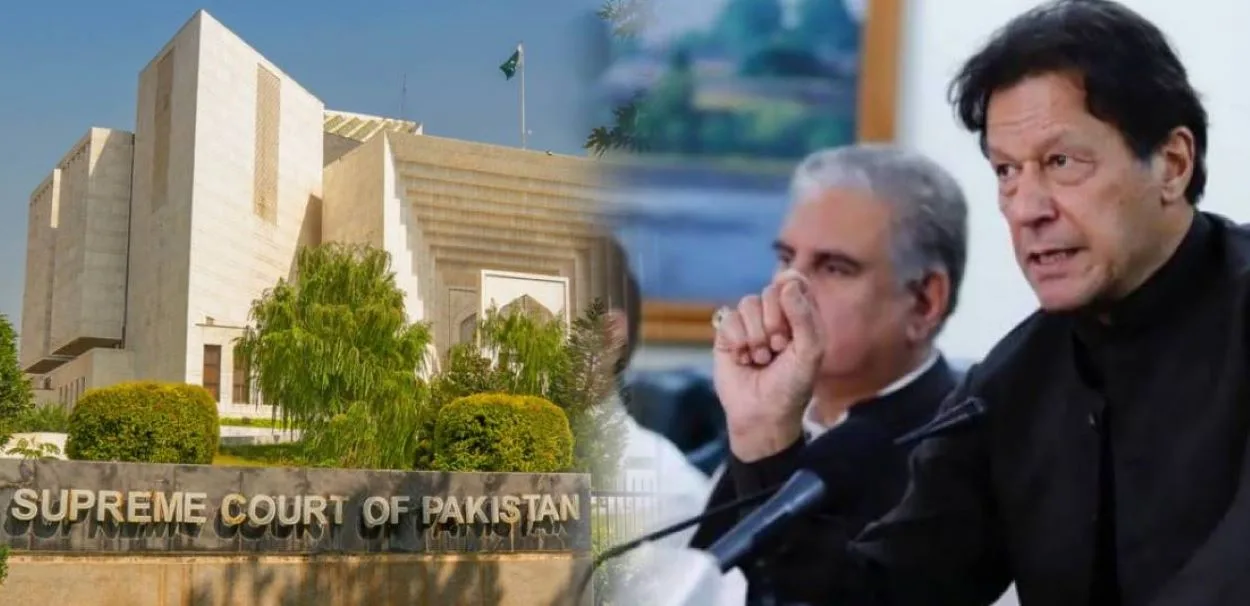The Supreme Court of Pakistan recently announced that the arrest of an individual from the premises of the high court would not only deprive the accused of their fundamental right to access justice but would also provide an open invitation to law enforcement agencies to consider the court premises as a hunting ground for apprehending accused persons.
The judgement follows a detailed judgement from a three-member bench headed by Chief Justice Umar Ata Bandial on a petition filed by Pakistan Tehreek-e-Insaf (PTI) Chairman Imran Khan. Khan’s petition challenged the order of the Islamabad High Court that upheld the legality of his arrest.
On May 11, 2023, the bench declared the arrest of Khan from the Islamabad High Court premises in the Al Qadir Trust case as illegal. The court maintained that the execution of the arrest warrant issued by the NAB chairman in the Al-Qadir Trust case within the high court premises was invalid and unlawful. The warrant execution was said to have violated Khan’s right to access justice and the sanctity and safety of the court.
Implications of the Ruling on Future Law Enforcement
The Supreme Court further explained that endorsing the arrest of the petitioner from the high court premises would not only strip him of his right to access a competent court to safeguard his fundamental liberty but would also encourage police officials and investigating agencies to treat the court premises as a hunting ground for capturing accused individuals.
This ruling, therefore, directs law enforcement agencies to abstain from such future conduct that infringes upon both the dignity, sanctity, and safety of the courts and the fundamental right of Pakistani citizens to enjoy liberty in accordance with the law. The judgement reasserted that an individual’s fundamental right of access to justice is now well-enshrined in the court’s jurisprudence and forms an integral part of the Constitution.
The court hopes that this judgement will remind law enforcement agencies about the importance of upholding the rights of accused individuals, particularly when seeking judicial oversight of their pending arrests.






